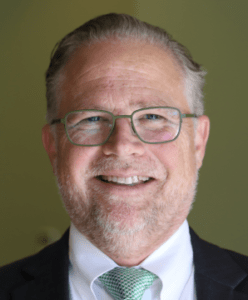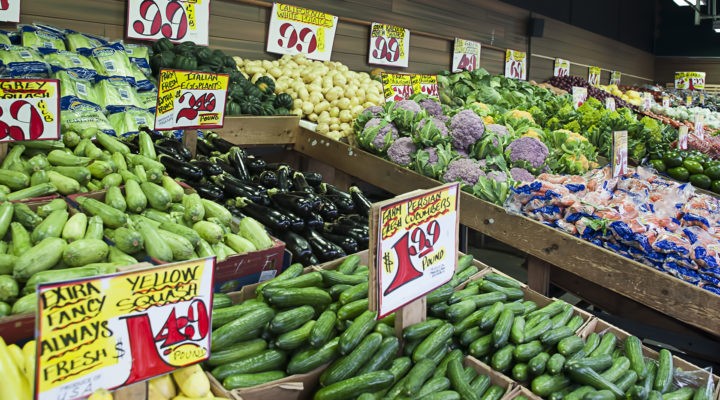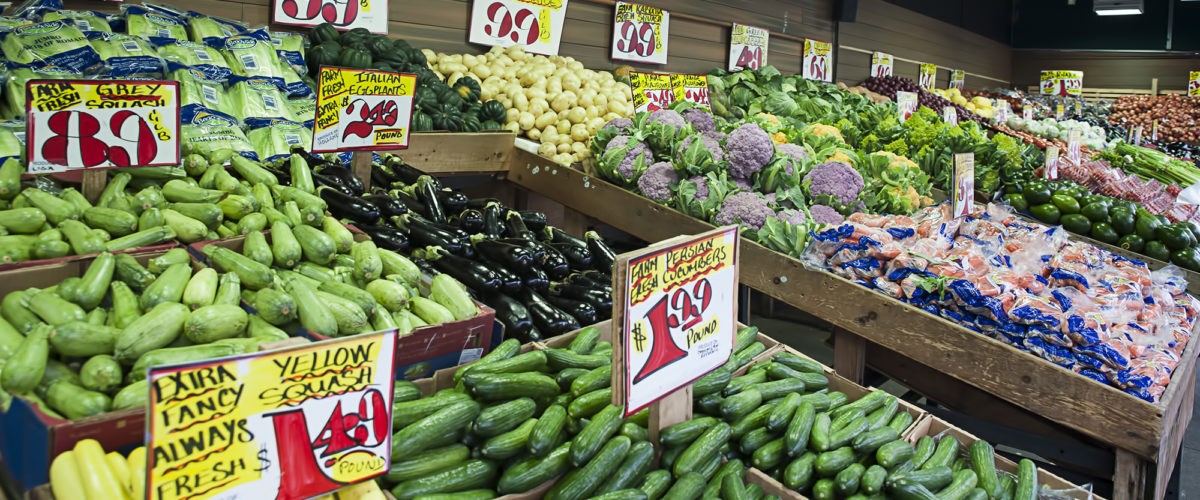Conquering food insecurity is not only one of the key social issues of our time but should be a top priority for people of faith, said Craig Gundersen, a leading expert on the subject who recently joined the Baylor Collaborative on Hunger and Poverty.
“Whether you’re in the New Testament or for that matter the Old Testament, there are constant calls to help those who are in need,” Gundersen said. “We are called as Christians to figure out how best to help those persons out. This is not something where we can ignore those who are most in need in our midst. We just can’t do that.”

Craig Gundersen
Gundersen, the inaugural Jim and Tammy Snee Family Chair in Food Security, comes to Baylor from the University of Illinois, where he was a distinguished professor and director of undergraduate studies in the department of agriculture and consumer economics. The Snee Family Chair in Food Security will provide support for Gundersen’s research within BCHP, expanding the organization’s work to alleviate poverty and hunger in communities around the country and the world.
Jeremy Everett, executive director of BCHP, said the project’s work in deploying solutions for poverty and hunger and working with legislators to create more equitable systems would amount to “spinning our wheels” without research and evaluation to inform what they are doing.
“This has always been a vital component of our work, but the addition of Dr. Gundersen exponentially elevates our status as the premier research-focused organization devoted to alleviating hunger,” he said.
While new to BCHP’s full-time faculty and staff, Gundersen is no stranger to the Baylor unit’s work and mission.
“They have an annual conference called ‘Together at the Table’ that I’ve been coming to, and I’ve gotten to know Jeremy and his team really well over the past decade,” he said.
Gundersen has been studying the causes and consequences of food insecurity and evaluating food assistance programs with an emphasis on SNAP for the past 25 years, and the move to Baylor and BCHP was a much-desired next step for him.
“It’s the leading organization in the country doing work on domestic food insecurity research.”
“It’s the leading organization in the country doing work on domestic food insecurity research,” he said, explaining that BCHP’s network of offices across the state with intervention programs like Meals to You, SNAP outreach and summer food services programs has created “a really neat laboratory” for developing best practices for addressing food insecurity.
Gundersen, a lifelong Catholic who completed his undergraduate education at the University of Notre Dame, said the move to Baylor also fits well with his personal faith that informs his life’s work.
“The reason why BCHP is doing this work — the reason why Baylor is so supportive of BCHP — is at base because of our Christian faith that we feel called to help those who are in need,” he said. “There are a lot of secular institutions doing interesting work on this, but I really wanted to be at a place where faith is first and foremost.”
He continued: “If you look at those who have been at the front lines of addressing hunger in our country, it’s our churches. It’s our faith organizations, whether it be the Salvation Army, whether it be Catholic Charities, whether it be the numerous Baptist churches all across the country who are directly helping out those who are in need to come to their churches to get assistance.”
“If you look at those who have been at the front lines of addressing hunger in our country, it’s our churches.”
Gundersen said the solution to hunger and food insecurity requires a three-prong approach.
“The first is that we can never diminish the importance of charitable, direct action that people have — our food banks across the country or other service organizations. They are nimble and quick and can address issues in a meaningful way,” he said. “We really saw this at the outset of COVID when we didn’t know what was going on, but you saw the food banks really stepping up to help out those most in need.”
The second prong is to harness those things that government does well.
“In a country as wealthy as ours, we have the resources that we can address food insecurity,” he said. “I definitely do not see the government as a solution to all our problems, but in some specific instances the government can play a really critical role. One program that I’m very fond of is the Supplemental Nutrition Assistance Program (SNAP), formerly known as the food stamp program, and that really has to be in any discussion about addressing food insecurity in our country. And in fact, BCHP is actually doing some really neat work in terms of outreach to those who would benefit from SNAP.”
And the third prong is the private sector.
“We have this incredible ag supply chain in the United States that is based upon the free markets,” he said. “This is not a government-run ag supply chain; this is from our farmers across the country, for that matter across the world, producing food all the way up to our food stores, whether it be H.E.B, whether it be Walmart, whether it be Kroger. From that farm into the food stores and to individuals it’s just so successful.”
Gundersen said a goal of his research through BCHP is to determine which of these resources, programs, collaboratives and partnerships work best in getting food assistance to people in need. And the effort needs to be and has been bipartisan, he added.
“SNAP has received support from both sides of the aisle, and part of the reason it’s so successful is because it’s received this support,” he said. “And it’s great how in our mission at BCHP we also reach across the aisle to give information that is relevant to both sides.”
Gundersen said it is important for pastors to continue preaching the gospel of compassion and caring for others.
Looking at the ongoing role of the faith community, Gundersen said it is important for pastors to continue preaching the gospel of compassion and caring for others.
“If you preach all this, then what follows naturally is why parishioners need to address issues of hunger,” he said. “The second thing that I always like to talk about is to urge compassion toward those who are in need. We don’t know why they’re struggling, and we just have to be really compassionate to them.”
Gundersen noted that a leading predictor of food insecurity in the United States is mental health issues.
“I’d also say to pastors that direct service is really important,” he added. “Baptist churches have been feeding the country for hundreds of years through their churches, and moreover lots of people at these churches are also working at food stores making sure people have food. A lot of the Baptists and those in the pews are working for wholesale distributors. A lot of the parishioners in the pews are farmers. Let’s praise the work they do, let’s continue to support them in this really important work they do in terms of feeding the world.”
While Gundersen was based in the department of agriculture and consumer economics at the University of Illinois, he said 25% of his work at Baylor will be in the economics department in the business school, and 75% at BCHP.
“So, I’m able to devote a lot more time to research regarding addressing food insecurity across Texas and across the country,” he said.
A native of Madison, Wis., Gundersen enjoys an affinity with Texas, having lived in Houston in the early 1990s while working at Casa Juan Diego, a Catholic shelter ministry for refugees from Central America.
“I always have loved Texas and really welcomed the opportunity to come back to Texas,” he said. “In some ways Wisconsin is similar to Texas because there’s really a lot of state pride. Irrespective of where you live, people take a lot of pride in their state, and it’s the same way with Texas.”
Jeff Hampton is a freelance writer based in Dallas.
Related articles:
New endowed academic chair will lead Baylor in research to end hunger
Want to help slow immigration to the U.S.? Address global hunger
It’s tough being a pastor on World Hunger Sunday, but it’s harder to be hungry | Opinion by Brett Younger


